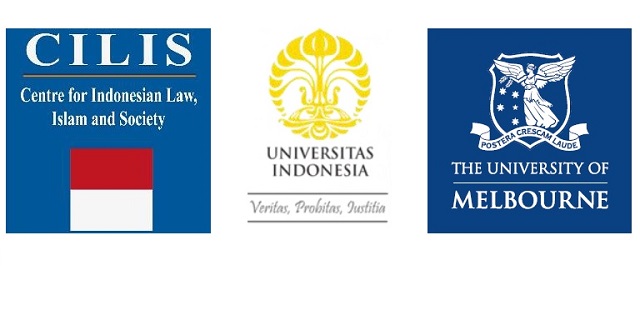Workshop on Presidential Regulation No 125 of 2016 on the Treatment of Refugees and Asylum Seekers in Indonesia: Opportunities and Challenges

In late December 2016, President Joko “Jokowi” Widodo signed a Presidential Decree (PD 125 of 2016) regarding the Treatment of Refugees and Asylum Seekers in Indonesia, a draft for which had been in the making since 2010 under the previous administration. PD 125 has been widely praised by some as an important step in recognizing the presence and rights of asylum seekers and refugees in Indonesia and criticised by others as inadequate or difficult to implement in practice. In this workshop we plan to bring together a team of involved and knowledgeable participants to address the challenges and opportunities that PD 125 of 2016 provides for the protection of refugees in Indonesia, based on the experience to date.
It has been suggested that the PD 125 of 2016 fills the absence of a domestic legal framework on refugee protection in Indonesia and that it is significant in providing a definition of a ‘refugee’ in compliance with international law. Although Indonesia is not a signatory to the 1951 Refugee Convention, it recognizes the right to seek asylum in Art. 28G Para.2 of the Constitution and in other laws. It is party to almost all core international human rights instruments, which include rights that are relevant to refugee protection, such as the International Convention on Civil and Political Rights, and the Convention Against Torture. Indonesia is also a party to the ASEAN Declaration on Human Rights and the 2001 Bangkok Principles (AALCO) which guarantee the right to seek asylum.
Lacking a legal mechanism and a comprehensive policy for refugee protection, Indonesia currently does not process the claims of asylum seekers but refers them to the UN refugee agency UNHCR under a Regional Cooperation Arrangement (RCA) dating from 2002. Under the RCA, IOM has the mandate to provide ‘case management and care’. Care is defined narrowly as the provision of shelter, emergency medical services and monthly stipends. However, the approximately 13,800 asylum seekers and refugees currently in Indonesia remain unable to access rights to work, quality healthcare or higher education due to restrictions in Indonesian laws. PD 125 does not impact on the intrinsic right of asylum seekers to a ‘durable solution’ such as local integration or resettlement in a third country. Nor does it set out new rights for asylum seekers and refugees; rather it focuses on technical guidelines for their rescue, reception (detention) and management (identification and registration). The focus of PD 125 of 2016 is on inter-agency coordination in the areas of interception, rescue at sea, accommodation, security, supervision, and funding.
In this workshop we seek a constructive dialogue to analyze the outcomes to date of PD 125 of 2016, but also to reflect on opportunities and challenges. This workshop will involve a broad range of participants who can address issues of policy and implementation. Presenters and discussants Page 2 of 2 will be administrators and representatives from the Coordinating Desk for Handling People-Smuggling, Refugees and Asylum Seekers (Desk Penanganan Penyelundupan Manusia, Pengungsi dan Pencari Suaka (P2MP2S)), immigration and police, national and local governments, academics, civil society, the UNHCR and IOM. It will lead to an edited collection of the papers (in both Indonesian and English) and include at least one session with a Call for Papers for scholarly contributions.
The two-day workshop, which will include a range of formats (keynote and academic presentations, case studies, and panels) will address the following themes:
- Implementation of the PD from an interagency perspective
- Limitations of the legal framework: constitutional rights vs immigration law
- Case studies from Jakarta and Makassar
- Regional responses to the Rohingya crisis
- The duty to rescue, ‘best protection practices’ in ASEAN
- The way forward: opportunities and challenges
This workshop is a collaboration between the Australian Research Council, Universitas Indonesia and the Centre for Indonesian Law, Islam and Society.